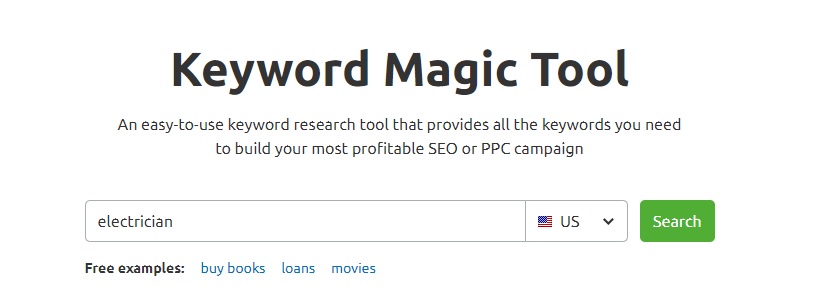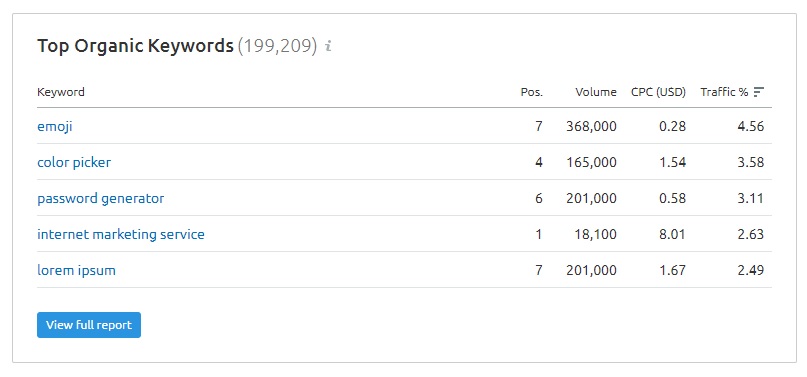Keyword research may be the most important step in an SEO campaign. Just as you wouldn’t build a house on a muddy slope without a proper foundation, you wouldn’t want to begin optimizing a website for search without a solid foundation. To properly lay a foundation, you first need to understand what requirements need to be fulfilled. The same goes for any SEO campaign, you need to understand the requirements of your target audience and how they are searching for solutions, ie. your content, services, or products.
Keyword research provides you with specific search data that can help answer questions like:
- What are people searching for?
- How many people are searching for it?
- In what format do they want that information?
In this post, you will learn strategies to assist in accessing that information, as well as valuable insight into avoiding keyword research blunders and building strong content on your website.
Where Do I Start with Keyword Research?
Ask Questions
In order to grow a business with digital marketing, through search engine optimization, you have to understand what that business is about, who the customers are, and the overall business goals. Many business owners think they know this information by default, but they sometimes find there is more to the puzzle than they realize.
Too many people skip this step because keyword research takes time, and they think: why spend the time when you already know the product or service? The problem with this is that people search for your product or service differently than you may think. The terminology you use to describe your products or services may be completely different than what your customers are using.
Here is an example. John Doe, the owner of The Handy Electrician, based in Philadelphia, has heard about SEO and wants to improve his business by showing up in the organic search results. To do so, we need to ask questions such as:
- What type of electrician is this company?
- Residential vs Commercial
- Who is searching for these terms?
- Who is the customer base?
- When are people searching for an electrician?
- Proactive vs emergency repair
- How are people searching for electricians?
- What words do they use?
- What questions do they ask?
- Are more searches performed on mobile devices vs desktops?
- Where are potential customers located?
There is one final question you need to ask. How can you provide the best content about electrician services and fulfill the requirements or needs of what people are searching to find?
How to Find the Right Keywords
You most likely have some keywords already in mind you would like to rank for in the search engine results. More than likely, those terms are short and broad descriptors of the products or services you provide. These broad search terms of your products, services, or other content are great foundations or “seed keywords” for your SEO campaign.
What Are Seed Keywords?
Seed keywords are how you start an SEO campaign. You can build an entire SEO campaign around your seed keywords and add modifier keywords to create “long-tail keywords”. Here is an example. A seed keyword for John Doe’s business would be “electrician”. A modifier keyword added would be the town/city name, Philadelphia. The new long-tail keyword is “electrician Philadelphia”. That is probably the shortest long-tail keyword in history, but you get the idea. Additional modifiers added to the seed phrase, create a more specific keyword phrase that users are likely to search. Example: “best home electrician in Philadelphia”
Once you enter your seed keywords into a keyword research tool, you will begin your journey and discover a multitude of keywords, common phrases, questions, and topics for your content that you may not have realized people are using to search for your products or services. There are a lot of free SEO tools to use for keyword research, however for this example we will use SEMrush’s Keyword Magic Tool, a software licensed by our agency to do keyword research.

When we enter the term “electrician” into the tool, we find search terms relevant to the seed keyword, such as:
- electrician near me
- local electricians
- licensed electrician
- commercial electrician
- residential electrician
We also see critical data including monthly search volume for the geographic area we set (United States), and a keyword difficulty rating, which is how difficult the keyword is to rank in search results.
| Keyword | Volume | Keyword Difficulty |
| electrician near me | 165000 | 78.77 |
| local electricians | 8100 | 71.02 |
| licensed electrician | 6600 | 79.97 |
| commercial electrician | 5400 | 53.66 |
| residential electrician | 5400 | 71.33 |
During your research, you will notice search volume and difficulty vary. Depending on how old your site is, how much authority it carries, and the backlink profile your site has, you may want to target the lower volume and lower difficulty ratings. This will allow you to gain rankings and traffic while building your site’s authority and ability to rank for the more competitive phrases.
IMPORTANT INFORMATION ABOUT KEYWORDS
Your entire website won’t rank for keywords, but your individual pages will. Some big brands can have their homepage ranking for multiple keywords, but for the average site, this isn’t true. By using the individual pages on your website to target specific keyword phrases through relevant content, you can diversify your keyword strategy to have a better opportunity for ranking.
Search Volume and Keyword Difficulty
In general, keywords with higher search volume are more commonly sought after, meaning you will have to do more work to rank for them. This is where the keyword difficulty rating comes into play. Although there are many factors at play in the keyword difficulty score, this is a good rule of thumb to follow when selecting keywords to target on your website.
Chasing the golden goose of high volume keywords may not be the best SEO strategy. Use long-tail keywords specific to your searcher’s intent, with lower volume, to capture highly targeted, ready to buy searchers. Keywords with high search volume and high keyword difficulty rank well on websites with expertise, authority, and trustworthiness. Begin with less competitive keywords to target as you build your website content and in turn improve your website expertise, authority, and trust so that you can eventually rank for those more difficult phrases.
Long Tail Keyword Optimization
At first glance, ranking #1 for “Electrician” would appear to be incredible. It has an estimated search volume of 30,000 searches per month. As you take a deeper look, is it what a typical electrician would want to rank for? Yes, there is obscene volume, but what type of traffic will it draw? The users searching such a broad term, may not be the users who purchase from a local business. It could be users looking for a job, or training, or for an electrician that does something completely different than John Doe. A broad keyword like “Electrician” lacks obvious intent. It may not always be the case, but many high volume keywords have vague search intent. When you target traffic like this, you are drawing visitors to your site with goals that don’t match your own and most likely will not increase your sales.
Don’t underestimate the power of long-tail keywords. Searchers using long-tail keywords are looking for a solution to a specific problem. Identifying the keywords with a clear intent and targeting your page content around the fulfillment of those specific needs creates an entry point for traffic that is further down your sales funnel than that of “broad” searches. This can improve the chance of conversion or sales lead. Conversion rate optimization can help incredibly with increasing your conversion rates once the searcher enters your funnel at this point as well as from other areas of your site.
Outrank Your Competitors
If your competitor jumped off a bridge, would you follow them? No! The same goes for keyword research. You don’t need to copy your competitor’s keyword list just because you think you are missing out on something. What is important to your competitor, may not be important to you. However, understanding what keywords your competitor is trying to rank for is a great way to give your keyword list a boost.
If you have a keyword in your list and your competitor is not targeting it, that may give you an edge. They may not have done keyword research thoroughly and missed an incredible opportunity to generate additional traffic.
Balance Your Target Keywords
Keyword diversity is a big part of keyword research and implementation. Attempting to rank for high volume/high difficulty keywords, while picking the easier to capture, low hanging fruit of long-tail keywords will help balance your website and SEO campaign. The goal is to end up with a list of keywords that provide some easy traffic while you progress towards the bigger, more challenging SEO goals.
How do you find keywords your competitor is ranking for?
Once again, SEMrush is a free SEO tool that can analyze your competitor’s keyword list. It allows you to run a limited number of free reports that will produce a list of your competitor’s top organic keywords. This makes quick work of analyzing your competitor’s keyword research. Simply enter your competitor’s URL for their full list.

Conclusion
With your keyword research complete, you can start focusing on generating content relevant to each keyword or keyword phrase. Keeping your target audience in mind the entire time, make sure you are matching the searcher’s intent and providing the solutions to their problems. Do not just throw words onto a page and expect to rank. Google and other search engines, with their machine learning, are smarter than you think. Write quality content and your rankings and traffic will improve.





